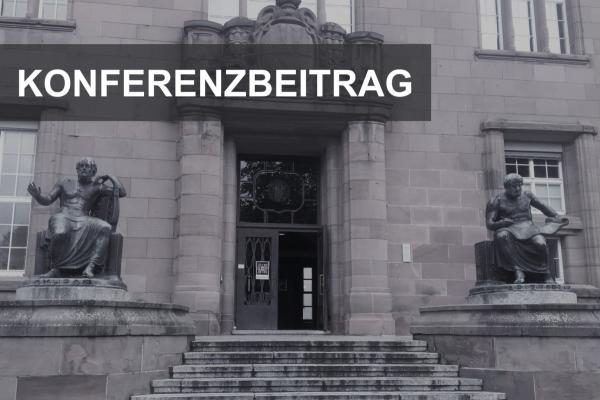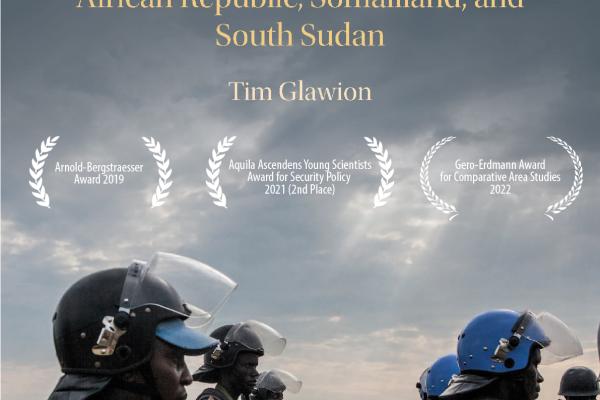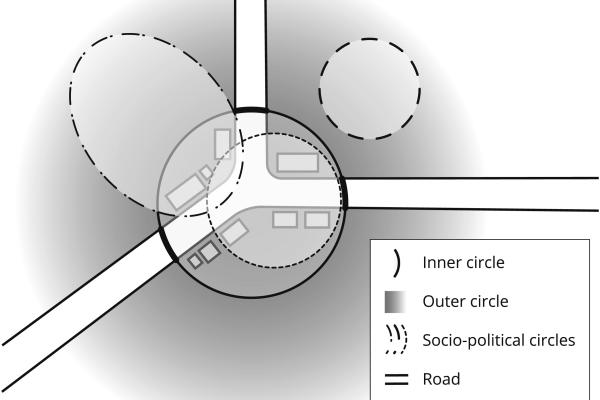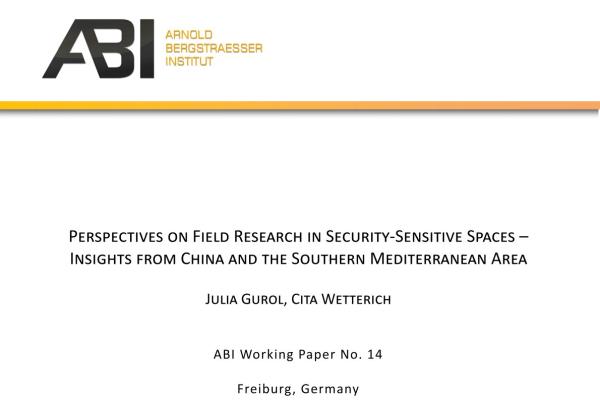Security

The opposing temporalities of objective and subjective security - with insights from Central Africa
German Africa Studies Conference

The Security Arena in Africa Local Order-Making in the Central African Republic, Somaliland, and South Sudan
Cambridge University Press

Studying insecurity from relative safety — Dealing with methodological blind spots
Glawion, Dr. Tim with de Vries, Dr. Lotje
Qualitative Research
Erscheinungsdatum:

‘Quietist’ Salafis after the ‘Arab revolts’ in Algeria and Libya (2011–2019): Between insecurity and political subordination
Eyre, Dr. Guy with Inga Kristina Trauthig
Mediterranean Politics
Erscheinungsdatum:

Perspectives on Field Research in Security-Sensitive Spaces - Insights from China and the Southern Mediterranean Area
ABI-Working Paper
